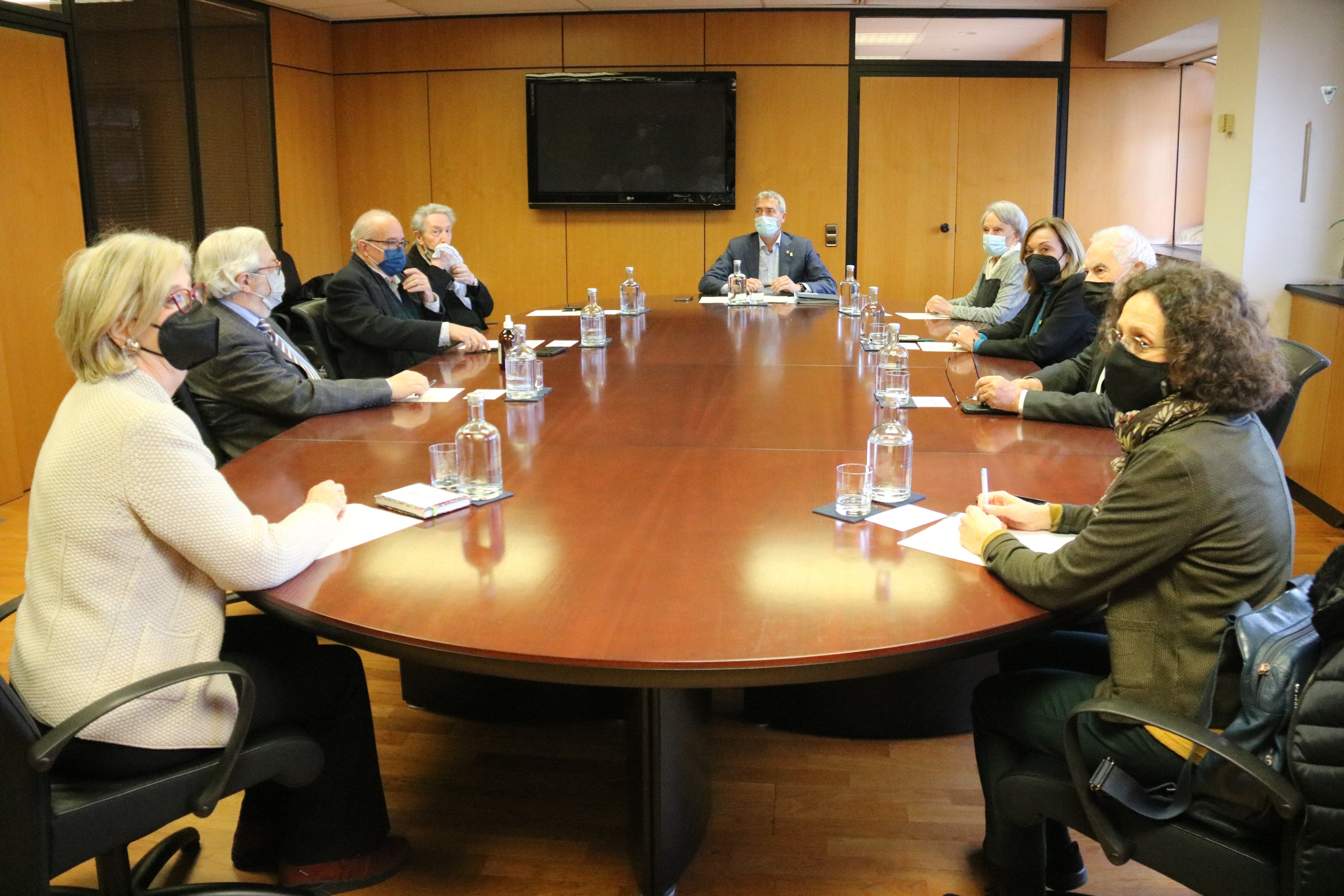Catalonia's current education minister, Josep Gonzàlez-Cambray, accompanied by eight of his predecessors, responsible for Catalonia's education system for virtually the last 40 years, have defended the model of language immersion in schools that has applied for almost all of this time. The motive: the latest blow received by this system, and by the Catalan language itself, through the Spanish Supreme Court's confirmation of the court sentence that establishes a level of 25% of teaching in Castilian (Spanish) in classrooms, as well as other specific court decisions, based on the general ruling, requiring changes to the way certain classroom groups are taught in different schools.
A meeting at the headquarters of the Department of Education, in Barcelona that brought together Joan Guitart (Catalan education minister from 1980-1988), Carme Laura Gil (1999-2003), Marta Cid (2004-2006), Joan Manuel del Pozo (2006), Ernest Maragall (2006-2010), Irene Rigau (2010-2016), Meritxell Ruiz (2016-2017) and Josep Bargalló (2003-2004 and 2018-2021) made a joint statement declaring that "the linguistic system of the Catalan school, born of a broad political and social consensus and supported by a fully valid legal framework, is based on equitable treatment for all students, the search for a formative balance between school and social reality and a will to integrate".
Favouring social cohesion
The ministers defended that the model constitutes a "structural axis for social cohesion" and has made it possible for Catalonia to welcome "citizens from many cultures who speak many languages" while also seeking to "preserve its own culture and own identity, as guarantors of this social and country cohesion". The declaration also notes that published studies and evaluation tests of basic competences reaffirm that it is a model that has allowed students to achieve written and oral competency in both Catalan and Castilian by the end of their compulsory education.
The nine education ministers stress that this achievement of this dual linguistic competence, plus "sufficient command" of a third language, is "substantial for the progress and integration of the whole of society".
For that reason, they argue that the Catalan education authorities have the duty and obligation to back the teaching staff in the exercise of their teaching work and the creation of educational projects and ways of organizing and operating in each school centre - including tailoring their own language projects to the needs of the group.
Spanish minister Iceta backs court
The decision of the High Court of Catalonia has already received the support of Spain's current culture and sports minister Miquel Iceta, who has come out in favour of imposing 25% of teaching hours in Spanish on a class of five-year-olds in the town of Canet de Mar.
For the former Catalan Socialist head, there is no room for interpretation: "Court rulings must be complied with," he said. In this regard, Iceta wanted to make it clear that "the government of Spain will stand by the people in defence of liberty, and the freedoms of opinion and expression." The main priority at the moment, as Iceta put it, is the "protection of the family" that made the legal complaint about the school's language plan.
Main image: This Thursday's meeting of nine Catalan education ministers, present and past. / ACN

